Understanding the Downsides of Filtering Water
Introduction
Water is the elixir of life, the foundation of our very existence. Yet, as we strive to purify this precious resource through filtration, we must also be aware of the potential risks that lurk beneath the surface. Like a double-edged sword, water filtration systems can both protect and harm, depending on their usage and maintenance.
One of the primary concerns with water filtration is the potential removal of beneficial minerals and nutrients. These essential elements, such as calcium, magnesium, and potassium, are naturally present in water and play a vital role in our overall health. However, certain filtration methods, such as reverse osmosis, can strip these minerals away, leaving us with water that is technically pure but potentially deficient in nutrients.
Accumulation of Contaminants in Filters
Water filters are designed to remove impurities from water, but they can also become a breeding ground for bacteria and other contaminants if not properly maintained. Over time, these contaminants can accumulate in the filter and be released back into the water you drink. This can pose a health risk, especially for people with weakened immune systems.
Imagine your water filter as a tiny city for bacteria. If you don’t clean it regularly, it’s like letting the city get overcrowded and polluted. The bacteria can multiply and spread, eventually making your water unsafe to drink. Just like you wouldn’t want to live in a dirty city, you don’t want to drink water from a dirty filter!
Financial Considerations 💰💸
Water filtration systems, like any other appliance, require ongoing maintenance costs. 💸 Filter replacements are a major expense, as they need to be changed regularly to maintain optimal performance. 🔧 The frequency of filter changes depends on the type of system, the quality of the water, and the amount of usage. 💧 Some filters may need to be replaced every few months, while others can last up to a year. 🗓️ The cost of replacement filters can vary widely, so it’s important to factor this into your budget. 💰💰
Consider this: Would you rather spend a little extra each month on filter replacements to ensure clean, healthy water? 💧 Or would you prefer to risk potential health issues and inconvenience down the road? 💭 It’s a decision that’s worth weighing carefully. ⚖️
Environmental Impact 🌍
Water filtration, while beneficial for our health, can have a significant impact on the environment. ♻️ The disposal of used filters and cartridges poses a challenge, as they often end up in landfills. 🗑️ These filters contain various materials, including plastic, activated carbon, and ion exchange resins, which can take hundreds of years to decompose. ⌛️ Additionally, the energy consumption associated with filtration processes can contribute to greenhouse gas emissions. 🏭
Moreover, water waste during backwashing or flushing can be a concern. 💦 This process, which is necessary to remove accumulated contaminants, can result in the loss of a significant amount of water. 💧 In areas where water resources are scarce, this can be a major issue. 💧
Taste and Odor Alterations 💧
Water filtration can sometimes alter the taste and odor of your water. 😕 This is because filters remove dissolved minerals that contribute to the taste, such as calcium and magnesium. Activated carbon filters, which are commonly used to remove contaminants, can also impart a slight odor or taste to the water. 👃
While these alterations may not be significant for some people, they can be noticeable for others. 🤨 If you’re sensitive to taste or odor changes, it’s important to consider this potential drawback before installing a water filtration system. 🧐
Here’s a table summarizing the potential taste and odor alterations caused by different types of water filters:
| Filter Type | Potential Taste and Odor Alterations |
|---|---|
| Reverse Osmosis | Removes most dissolved minerals, resulting in a bland taste |
| Activated Carbon | Can impart a slight odor or taste, especially when new |
| Ceramic | No significant taste or odor alterations |
| Distillation | Removes all dissolved minerals, resulting in a very pure taste |
Ultimately, the best way to determine if a water filtration system will affect the taste and odor of your water is to test it out. 🧪 If you’re not satisfied with the results, you can always remove the filter or try a different type. 🔄
DISADVANTAGES OF WATER FILTRATION ON YOUTUBE
Reduced Water Flow 💦
Water filtration systems can sometimes act like stubborn gatekeepers, restricting the flow of water. 💧 Filters, especially when clogged or dirty, can become a major bottleneck, slowing down the stream of water that once flowed freely. This can be a major inconvenience, especially when you’re in a hurry or trying to fill up a large pot or container. Imagine the frustration of waiting for a trickle of water to fill your coffee maker or showerhead! 🚿
The reduced water flow can also affect the performance of appliances and fixtures. Washing machines may take longer to fill up, and dishwashers may not be able to clean dishes as effectively. Even something as simple as washing your hands can become a chore when the water is barely dribbling out of the faucet. 🚰
It’s important to remember that filters need regular cleaning and maintenance to prevent clogging and ensure optimal water flow. Neglecting these tasks can lead to a frustrating and inefficient water filtration experience.
Maintenance and Upkeep
Water filtration systems require regular maintenance to ensure optimal performance and safety. Filters should be cleaned or replaced according to the manufacturer’s instructions. Neglecting maintenance can lead to a buildup of contaminants, reduced effectiveness, and even bacterial growth within the system. Just like changing the oil in your car, regular filter maintenance keeps your water filtration system running smoothly and protects your water quality.
Incompatibility with Certain Water Sources 💧
Not all filtration systems are created equal. Some may struggle to handle specific water sources, like well water or water with high sediment levels. 😕 It’s like trying to fit a square peg into a round hole!
If you don’t choose the right system for your water, you could end up with reduced performance or even damage to your filter. 💥 It’s like trying to use a strainer to catch sand – it’s just not going to work!
So, before you invest in a filtration system, make sure you do your research and choose one that’s compatible with your water source. It’s like finding the perfect pair of shoes – you want something that fits just right!
False Sense of Security 🚫
Water filtration systems can give us a false sense of security if we don’t maintain them properly or use them with other water treatment methods. It’s like putting on a seatbelt but not buckling it up! 🚗
Just because we have a filter doesn’t mean our water is automatically safe. Filters can remove harmful contaminants, but if we don’t change them regularly, they can become breeding grounds for bacteria. And if we don’t use them in conjunction with other methods, like boiling or disinfecting, we might not be getting the full protection we think we are.
It’s important to remember that filtration systems are just one part of a comprehensive water treatment plan. We need to understand their limitations and use them properly to ensure our water is safe and healthy. Don’t let a false sense of security put our health at risk! 🛡️
Conclusion
The Balancing Act of Water Filtration
Weighing the pros and cons of water filtration is like walking a tightrope. On one side, you have the promise of cleaner, healthier water. On the other, you have potential risks and limitations. It’s a delicate balance that requires careful consideration.
Water filtration systems can certainly provide benefits, but it’s crucial to understand their potential drawbacks. They may remove essential minerals, accumulate contaminants, and even lead to bacterial growth if not properly maintained. Financial considerations, environmental impact, and taste alterations are also factors to keep in mind.
Just like a car needs regular maintenance, so does a water filtration system. Neglecting upkeep can compromise its effectiveness and safety, leading to a false sense of security. It’s essential to understand the limitations of filtration and use it in conjunction with other water treatment methods when necessary.
Ultimately, the decision of whether or not to use a water filtration system is a personal one. By weighing the pros and cons, you can make an informed choice that best suits your needs and circumstances. Remember, clean water is essential for our health and well-being, but it’s equally important to be aware of the potential risks associated with filtration.
CHOOSING HOME WATER FILTERS & OTHER WATER TREATMENT SYSTEMS | CDC
EFFECT OF HOME-USED WATER PURIFIER ON FLUORIDE CONCENTRATION … – NCBI
DISADVANTAGES OF WATER FILTRATION
WATER FILTRATION BERKEY
DRINKING WATER FILTRATION SYSTEM
BEST WELL WATER FILTRATION SYSTEM
WATER FILTRATION EXPERIMENT

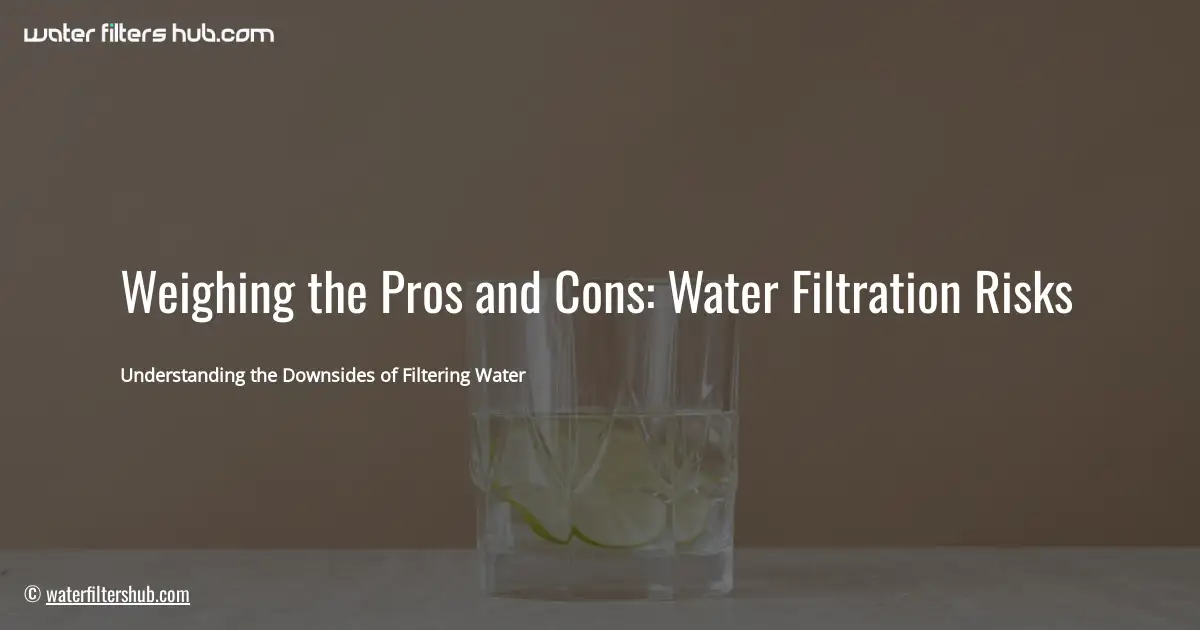
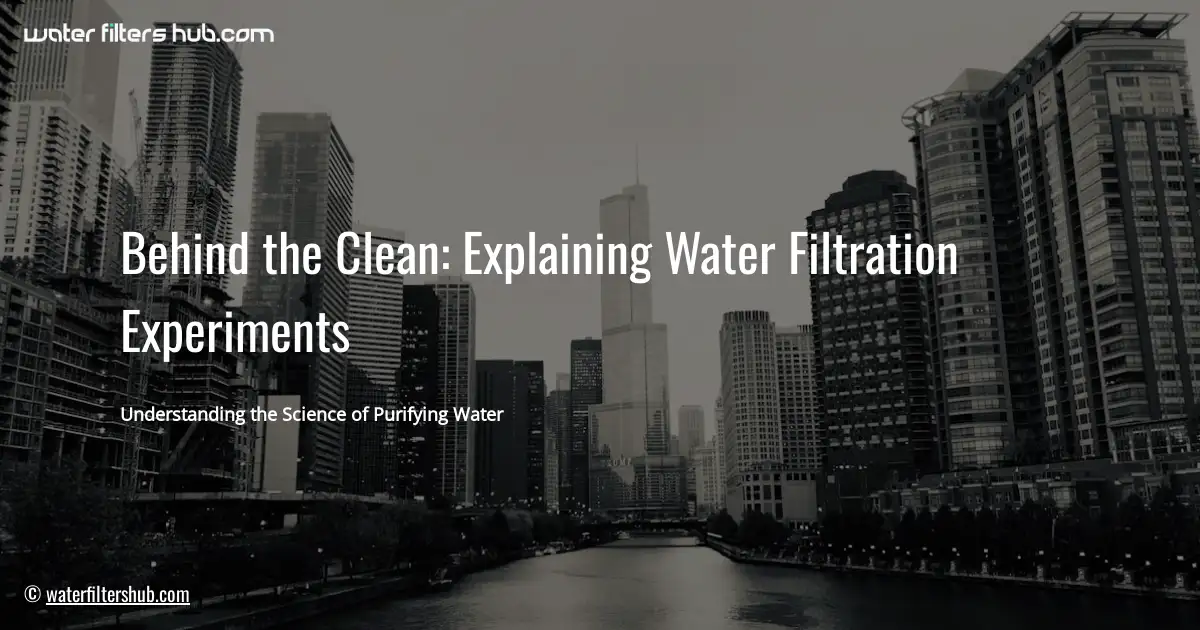
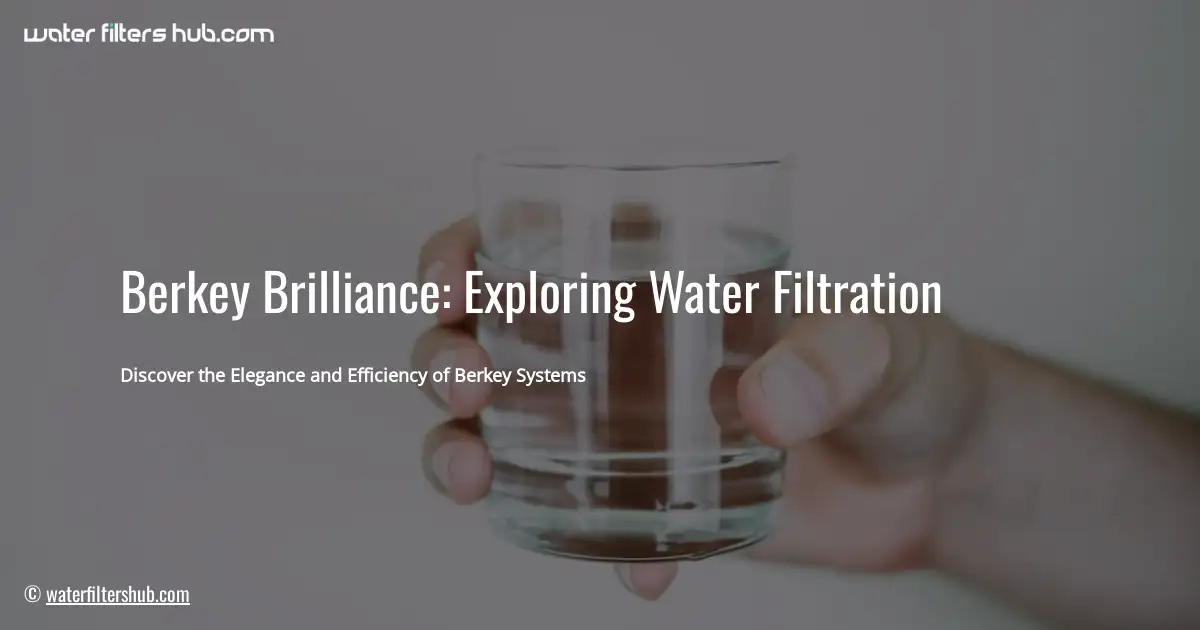
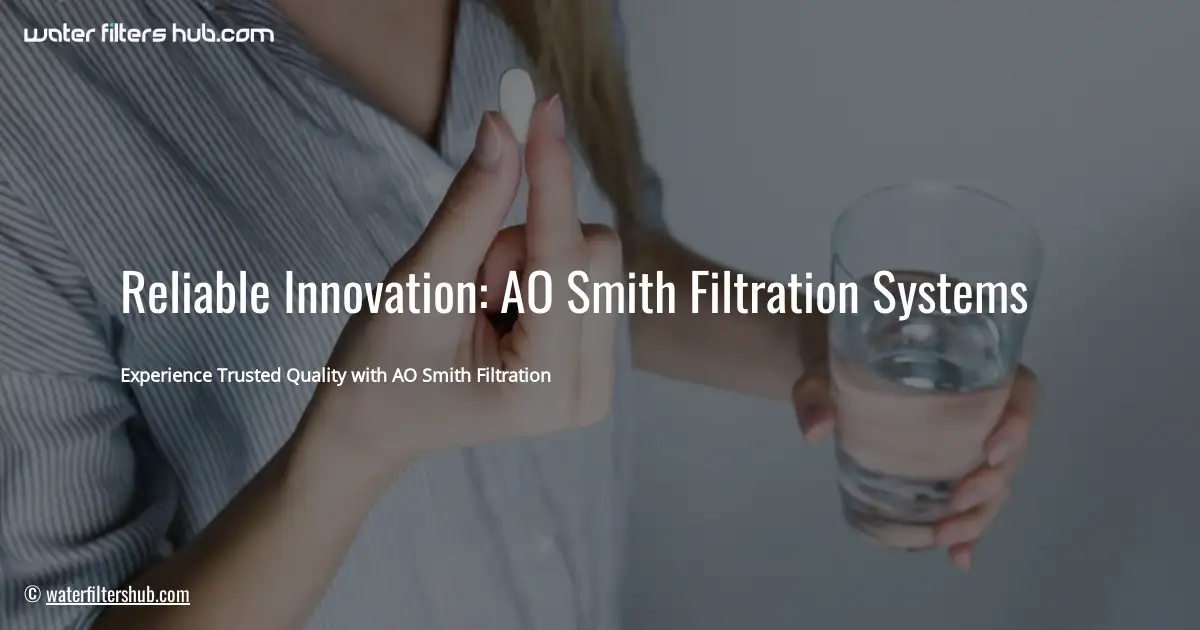

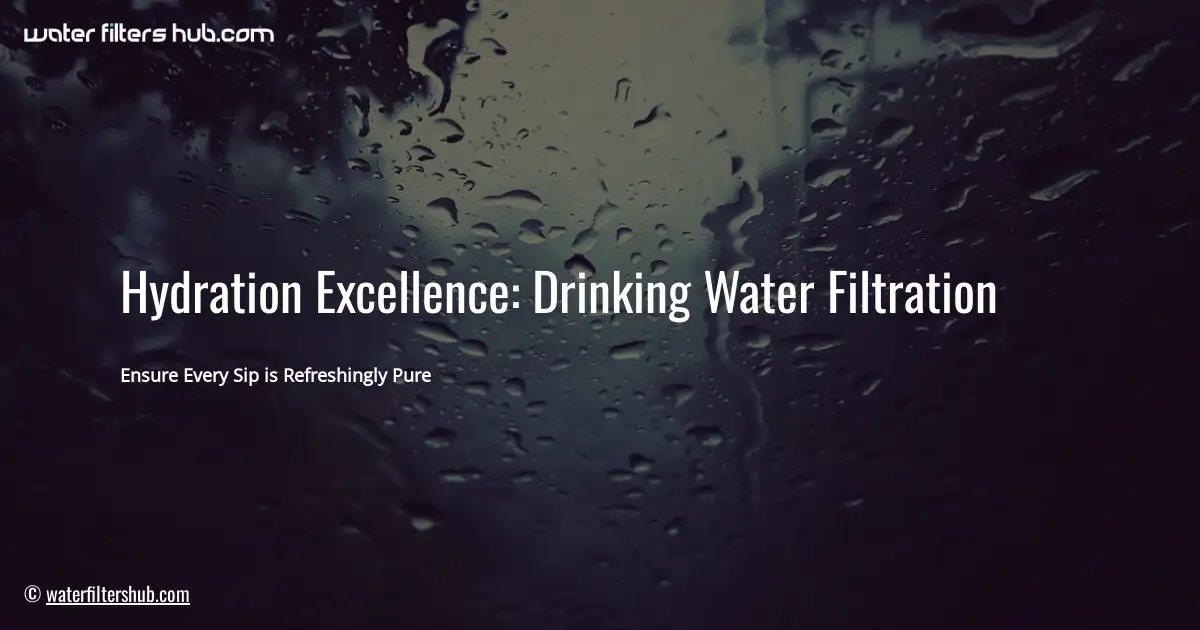
Leave a Reply